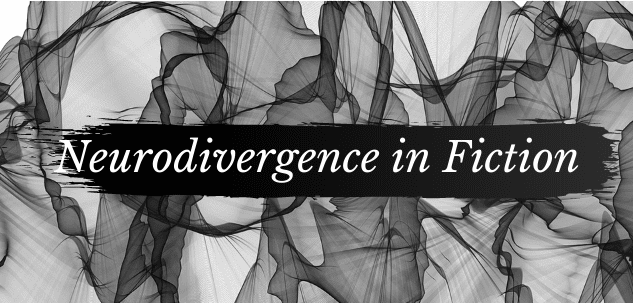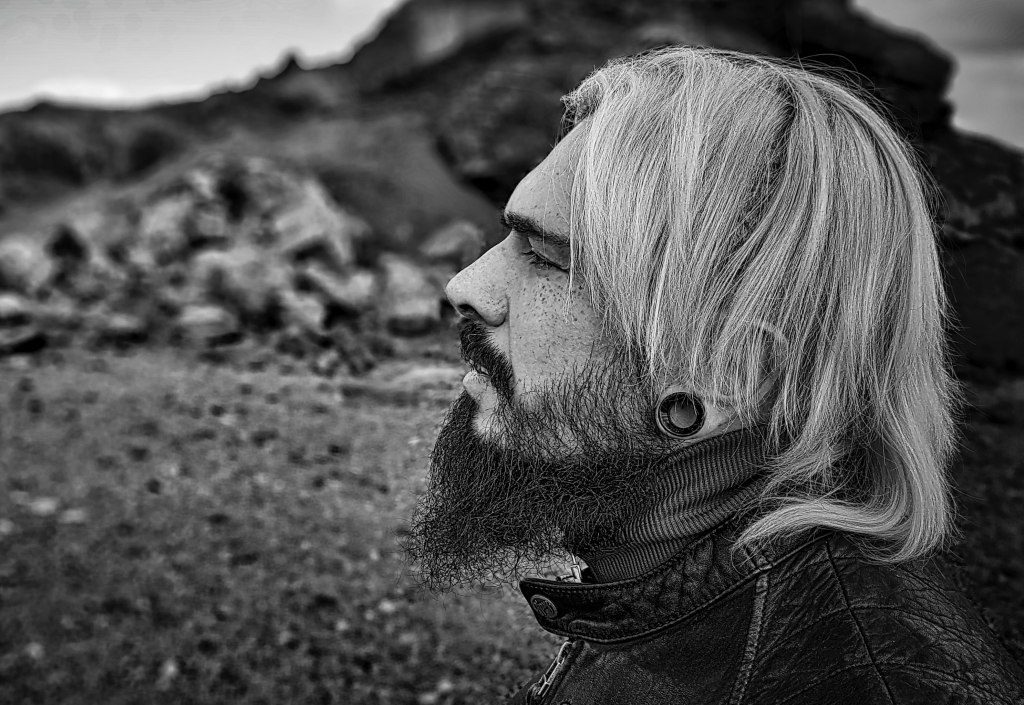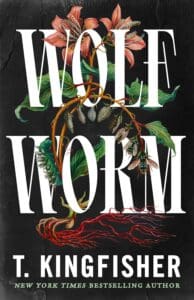
Hello all, and welcome to this week’s article for FanFiAddict’s series on Neurodivergence in Fiction. I cannot understate how appreciative I am for the overwhelming amount of support and enthusiasm I have seen for this series of mine; thank you! For the next several months we will be bringing you a guest post every Wednesday from a neurodivergent author. This will hopefully highlight some of the challenges that come with writing for a largely neurotypical audience, while also giving valuable insight to the craft itself and providing a window into the neurodivergent experience — at least through the lens of fiction. For this week’s article, Bjørn Larssen stops by to discuss his experience in coming to understand himself through his characters.
And, without further ado, the article.
A character in The Land of Dreams is Better Far, a bonus story found in the hardcover edition of Children, is a 21st century man encountering the Norse Goddess Freya. He doesn’t want to interact with Gods and Goddesses, talk to them, be lectured by them. It’s not a reality that an agnostic (or anybody else, I guess) can simply adjust to. “What happens if I go to a doctor and tell him this is happening?” he cries. Freya shrugs. “You’ll get a diagnosis. That’s what doctors do. They give diagnoses.” In 2021, the man would probably get diagnosed either with schizoaffective disorder, or bipolar I. Twelve hundred years earlier, he would be celebrated and respected as a seer and a shaman – or killed as a liar for insisting he could speak with the Gods.
This story most probably isn’t based on any personal experience of mine.
*
My first book, Storytellers, is set in Iceland in 1920. Its protagonist, Gunnar, is autistic, suffers from an anxiety disorder and atypical depression, and self-medicates with moonshine. He doesn’t know any of that. He’d never speak about this to his doctor. He’s not aware that his brain is actually different from those of others; he wouldn’t be able to phrase what exactly is happening either. This was what I set out to write from the beginning – an experience of someone who is neurodivergent and suffers from mental illness (those two are not the same thing), but can’t express it. A year later I’d find out I was writing what I knew.
“Gunnar didn’t know why every time he visited the doctor his breath turned shallow, heartbeat accelerated, throat tightened. What he did know was that he couldn’t tell Doctor Brynjólf that he was afraid of his coffee cups.”
The way Gunnar deals with small talk is by dreading it in advance, then tuning it out and nodding until it’s over, and finally rewarding himself by getting blind drunk. He feels happiest with his dog and his horse. Neither of them want him to change, have hidden agendas he doesn’t understand, or treat him the way both “the darkness” and other people do. Gunnar lives in constant conflict between wanting to be accepted the way he is and knowing it isn’t happening, and wanting to be “normal” – but not knowing how to do that.
Gunnar experiences “the darkness” which fills him with suicidal thoughts, whipping him with what in the 21st century we understand as typical symptoms of depression; anhedonia, exhaustion/lack of motivation, the belief that he has no value, is somehow broken, useless, and so on. In those moments he knows – he’s a failure, unable to be a real man. There’s nothing that can be done. Even if he knew what depression is (he doesn’t), he’d dismiss it as something that happens to women. What he knows is that a lot of people decided to mold him to fulfil their expectations (which neurodivergent people will be familiar with) and he doesn’t want that even more than he doesn’t want to be broken.
When the book came out, my brother congratulated me on my courage. I had no idea what he meant. My brother was proud of how honest I was about my alcoholism. I explained that I didn’t actually produce moonshine and my liver was not on the verge of collapsing. (I’m still not sure whether he believed me.) What neither of us realised was that the autobiographical part was Gunnar’s personality. I, too, thought that I was broken, unable to live life like “normal” people did. The difference between Gunnar and me was that I knew how to express myself. I could ask for help and get it.
Many reviews praised my ability to write a character that is initially so unlikeable, yet as the book progresses, they begin to identify with him. It had never occurred to me that Gunnar was unlikeable.
*
When I worked on Storytellers, I read that Icelanders had “no time to be depressed,” because there was always so much work to be done. A funeral would involve a quick ceremony followed by coffee, brandy, pancakes, a discussion about sheep and poems. And…that was it. But just because “there was no time,” the depression did not disappear.
In Storytellers, after a miscarriage, “Juana wouldn’t let go of the sadness. Arnar consoled her for a few nights, but soon returned to his regular life and work. It was his unborn child as well, but nobody saw him tearing up about it.” What people saw instead was a man plagued by anger fits, drinking hard, either working until his fingers bleed, or disappearing. Searching for someone he could blame for the pain he carries. But definitely not depressed. They also saw a lazy princess. That happened in the 1880s.
A few years ago, in the 21st century, I read an article the gist of which was that depression and Asperger’s, as it was still referred to at the time, were “inventions of rich parents with bored children,” which was somehow proven by the increasing number of diagnoses. The cure, the article suggested, was working harder. This piece of advice, unlike yoga at sunrise, would be dispensed to my characters as well.
Gunnar works hard and drinks hard, the only cures he can think of. Neither of them works. People want things from him that he can’t deliver, and get angry when he doesn’t. The neurodivergence feeds the illness. All people see is a weirdo that reeks of sweat and moonshine. They make it clear to him. Which makes him feel worse. Repeat. Work. Drink. Repeat. And avoid people.
*
One of the protagonists of Children, my second book – a re-telling of Norse myths – is also on the autism spectrum. This time I did it on purpose. Again, I wanted to write about someone who knows he’s different, but doesn’t know how, why, or how to express it. Magni has sensory issues, rocks when heavily stressed, often feels that the conversation taking place seems not to be the one he’s participating in.
“They really were something else, something I didn’t understand. We might have used the same words, but we spoke different languages. […] “Stop this,” demanded the innkeeper and for some reason everyone’s eyes turned towards me. Again. I said nothing at all this time, how was that also wrong?”
Magni is the son of Thor and lives in Midgard, in the timeframe roughly corresponding with Earth’s 9th century. Autism spectrum won’t be “invented” for another thousand years. He doesn’t know what sensory issues are and that others don’t experience them. Unlike Gunnar, though, he isn’t ashamed of who he is. He knows he doesn’t fit into the world(s) surrounding him and resignedly accepts it. Humans, he thinks, are weird. (I’m right. I mean, he’s right.) He struggles with c-PTSD, communication problems, being a God (this part isn’t autobiographical). His autism is neither a tragedy nor a superpower.
Some reviews call Magni “dim-witted.” This, again, gave me a bit more insight into how I can be perceived.
*
“I recognized Gunnar as autistic when reading Storytellers,” an author friend says, “but given its setting and time, there would have been no diagnosis possible, so other than thinking he was extremely well shown, I didn’t think anything more about it.” I didn’t know Gunnar was autistic. I just based his life on my own. In fact, it wasn’t until I started writing this very article that I realised what I had done.
My own diagnosis in February 2020 initially devastated me. I knew that many other people diagnosed with autism in their adulthood were delighted to finally get an explanation – and validation – why they were “like that.” My automatic reaction was “no.” Just that. As months passed, I began recognising more and more of the traits I read (and, apparently, wrote) about.
During the diagnostic process, I mentioned to a few friends I trusted that I was undergoing the tests, interviews, and so on. “Nonsense,” one huffed. “You have feelings, you’re one of the most loving people I know. You can’t be autistic!” I nearly apologised, feeling as if I offended her personally. “Nonsense,” said another. “You’d never be able to write like this if you were autistic!” (Coincidentally, if I ever write a memoir, it will be called Nonsense.)
In the 21st century, autistic people know the concepts of “masking” and “passing.” The former is, basically, attempting to make neurotypical people feel comfortable in our presence. It’s exhausting and often it isn’t until we crash and burn that we get diagnosed. (That was my case.) The latter means we’re succeeding at it.
“Show, don’t tell” was the piece of writing advice that caused me the most trouble. I knew very well how my characters were feeling, but apparently simply saying it was a bad thing. (This is why non-fiction is easier to read for people on the spectrum, by the way.) I used books about body language, studied other writers’ approaches, took a lot of notes and saved quotes. The same friend who recognised Gunnar as autistic told me I’m great at writing emotions in a way that feels visceral. The book masked so well it passed, unlike Gunnar himself.
My own emotions can be overwhelming; so are my characters’ emotions. I do all that I can to make the reader experience them. There are two scenes in Children that I have rewritten 40-50 times, until I felt I really managed to capture them. Translate them from my language to neurotypicalish. But…
“Write what you know,” they say. The saying generally addresses experiences of minorities of various sorts. Rightly so; I have seen depictions of autism or bipolar disorder so cringeworthy and detached from reality that I just wanted to slam my head against the wall (or, ideally, the author’s head… but in a kind and loving way, of course). So… can an autistic writer who’s never been great at passing really write a neurotypical person? Is there any NT representation in my books?
*
Not long ago I bumped into a tweet saying that “hiding” the autistic rep brings in more NT readers who “don’t like autism,” but when we use it as a selling point we attract autistic readers who actually want to read it.
The word “rep[resentation]” disturbs me. It can’t be applied to grimdark, the genre I write in, because grimdark is about troubled, imperfect people. You can’t have “good representation” in grimdark any more than kill off your heroine in a sweet romance. If Magni must represent someone, then that someone is me, but really, Magni only represents himself. And doesn’t always come out looking great. The thought that there are NT readers who “don’t like autism” disturbs me as well. Using my characters’ (or my own) neurodiversity as a selling point turns the novels from “books about people” into “books with autistic protagonists.” Am I wrong? Is this my autism showing? Because I feel similarly about the word “diversity.”
While it definitely works for me as a part of “neurodiversity,” I dislike the concept of adding “rep” for the sake of ticking as many checkboxes as possible. It’s one of the reasons I have chosen to self-publish – there is no agent or publisher who’d tell me Gunnar is too unlikeable or Magni – too dim-witted. Can this be what “NTs don’t like autism” means?
What would make good autistic rep? Despite Gunnar’s best attempts, he doesn’t pass. His efforts to mask continue to fail, and the longer he isolates himself from the community he doesn’t fit, the more he doesn’t fit into it. Drinking is Gunnar’s salvation in more than one way. It’s easier to present as an alcoholic than to understand or explain why being asked “are you having a good day?” makes him sweat. People may disapprove of the former, but they understand what it means. This also applies to Gunnar.
Magni neither masks nor passes. The weird thing about him that one nobody understands is that he doesn’t want to kill in a universe built on cruelty and death. He hides from the sort of people who frequent taverns, because they speak a language he doesn’t understand. Women’s attempts to make it clear they find him attractive simply fly above his head. When challenged to what is a medieval version of “how much do you lift, bro” Magni wins without breaking a sweat (which is what’s bound to happen when you challenge the son of Thor). He’s surprised when the opponent, who suggested the game, is furious, and others laugh at him, then accuse Magni of provoking aggression. For obvious reasons, Magni doesn’t think about himself as neurodiverse or autistic. He struggles with self-acceptance, because sometimes it would simply be convenient, make his life easier, to understand the unspoken.
*
When Gunnar encounters an elf, he’s terrified that he’s going insane. What can be worse – the elf being real, which would mean that elves are real (this is Iceland, good luck finding an Icelander willing to say confidently they aren’t), or seeing and hearing elves that don’t exist? If Freya appeared in front of him, Gunnar would no longer have any doubts. It would be clear to him that he belongs in an asylum, as if it weren’t enough that his inability to socialise makes him so clearly broken.
In Children, when Magni encounters golems, trolls, shapeshifting Gods, it’s hardly unusual. Not just because Magni is a God himself. In the 9th century the Norse believed Gods walked amongst them. There was no “natural” and “supernatural,” and an attempt to divide things into “real” and “not real” would either confuse people, or anger them.
Where Freya tells the narrator of The Land of Dreams is Better Far that “if he goes to a doctor he’ll get a diagnosis,” in Children she tells Magni to go take a bath, then put on something clean and stop salivating when he sees her. In Children Magni isn’t neurodiverse or mentally ill. He just is, same as Freya. I hope it won’t take us another eleven centuries to see the day when an autistic person or someone with well-medicated bipolar disorder isn’t “neurodiverse” – but someone who just is. I’d like my books to bring that day closer.
About the Author

Bjørn Larssen is a Norse heathen made in Poland, but mostly located in a Dutch suburb, except for his heart which he lost in Iceland. Born in 1977, he self-published his first graphic novel at the age of seven in a limited edition of one, following this achievement several decades later with his first book containing multiple sentences and winning awards he didn’t design himself. His writing is described as ‘dark’ and ‘literary’, but he remains incapable of taking anything seriously for more than 60 seconds.
Bjørn has a degree in mathematics and has worked as a graphic designer, a model, a bartender, and a blacksmith (not all at the same time). His hobbies include sitting by open fires, dressing like an extra from Vikings, installing operating systems, and dreaming about living in a log cabin in the north of Iceland. He owns one (1) husband and is owned by one (1) neighbourhood cat.
Readers’ Favorite Gold Medal winner (‘Storytellers’)
2020 Stabby Award Nominee (‘Children’)
Website: https://www.bjornlarssen.com
Twitter: www.twitter.com/bjornlarssen
Facebook: www.facebook.com/bjornlarssenwriter
Amazon: https://www.amazon.com/Bj%C3%B8rn-Larssen/e/B07P5TQ6Q8/
Goodreads: https://www.goodreads.com/author/show/18916648.Bj_rn_Larssen



Another phenomenal article for this series of posts!